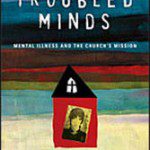Lectionary Reflections for the Sixth Sunday of Easter – May 12
Acts 16:16-34; Psalm 97; Revelation 22:12-14, 16-17, 20-21; John 17:20-26
God is alive! God is at work in our lives! We can trust God’s loving-kindness in every life circumstance. With the apostle Paul, we can experience joy even in the most challenging situations. There are no guarantees of success and security, but there is the promise of companionship, care, and comfort, not to mention images of hope and possibility to bring light to life’s darkest hours.
Many readers of Acts 16 will be reminded of the hymn, “How Can I Keep from Singing?” Paul and Silas are in prison, falsely imprisoned and beaten. They have every reason to be downcast. And, yet they are singing and praying. Perhaps, their songs are intended to be affirmations aimed at restoring their spirits as well as hymns of praise. Or, perhaps, the God who led them by mystic visions to Philippi is so real to them that praise and gratitude, not fear or anger, characterize their experience. In Romans 8, Paul proclaims “nothing can separate us from the love of God,” even the threats of prison, pain, and death. Listen prayerfully to Robert Lowery’s words:
My life flows on in endless song;
Above earth’s lamentation
I hear the sweet though far off hymn
That hails a new creation:
Through all the tumult and the strife
I hear the music ringing;
It finds an echo in my soul—
How can I keep from singing?
In the wake of an unexpected earthquake, the jailer is ready to end his life, having assumed that his prisoners, Paul and Silas, have escaped. He is so amazed by Paul and Silas’ faith that he desires God’s salvation as well. “What must I do to be saved? He implores his prisoners. Their response is simple: believe in Jesus Christ. Belief in Christ is a matter of trust in God’s saving power and presence in our lives. Though affirmations and propositions play a role in saving faith, ultimately saving faith is grounded in the trust that in life and in death, we are in God’s care. Saving faith reflects our openness to the many dimensions of God’s grace moving through ordinary life and moments of exceptional challenge and invitation.
Psalm 97 is, at first glance, a hymn to divine grandeur. The preacher’s imagination may turn to another hymn, “How Great Thou Art?” God is great, the whole universe emerges through God’s wise creativity; but God’s power is not random or dominating but characterized by justice and righteousness. Power for its own sake is demonic and the worship of such power destroys persons and communities. Terrence Fretheim asserts that many people ask “do you believe in God?” when a more important question is “what kind of God do you believe in?” Thomas Oord notes that many persons see God’s primary characteristic as power, when the Christian experience is clear that every divine action needs to be understood in terms of love.
The Psalmist would concur: every act of God reflects power, but this power is shaped by justice, beauty, and love.
The words from Revelation describe the world-transforming coming of Christ. God is trustworthy and will have the final word in our lives. Christ’s return is invitational in nature: “Come to the waters,” God calls. God will nurture us, responding to our deepest needs. You just need to reach out to claim God’s abundant life. Yet, divine power does not undermine our agency; we can choose to follow God or turn away, and our choices have consequences. Our response to God shapes God’s response to us: God’s grace is prevenient and comes before we have achieved anything. God’s grace is relational, moving through our decisions, which can enhance or minimize God’s presence in our lives.
Can you imagine the possibility that Jesus is praying for us? Like the “butterfly effect,” Jesus’ simple prayer, spoken over two thousand years ago, has great power, and grows rather than diminishes over time. Jesus’ prayers for his first followers, radiate throughout history, creating a field of force that still transforms persons’ lives. Jesus’ prayer is focused: he prays for unity in the body of Christ, reflecting his unity with God. God is Jesus’ deepest reality, and Jesus’ consciousness intimately connects with the divine experience, magnifying God’s presence in the world.
This unity in Christ does not require uniformity of ethnicity, sexuality, theology, politics, or personality type. Oneness in Christ reflects the diversity of creation and God’s own delight in diversity. Still, this generous diversity is balanced by the quest for common cause among those who call themselves Jesus’ followers – this common cause is our prayer in our quest to heal the Earth, bring joy to little children, insure adequate food, housing, and healthcare for all persons, uplift and welcome vulnerable and marginalized persons, and explore ways to grow together, rather than apart, in our pluralistic age.
This quest for unity, grounded in beauty, love, and justice, will meet resistance despite its altruistic and welcoming spirit. Nevertheless, we can keep the faith, knowing that God is in and with us, sustaining, guiding, and inspiring us. How can we keep from singing?
When tyrants tremble in their fear
And hear their death knell ringing,
When friends rejoice both far and near
How can I keep from singing?In prison cell and dungeon vile
Our thoughts to them are winging,
When friends by shame are undefiled
How can I keep from singing?No storm can shake my inmost calm
while to that Rock I’m clinging.
Since love is Lord of heaven and earth,
how can I keep from singing?













